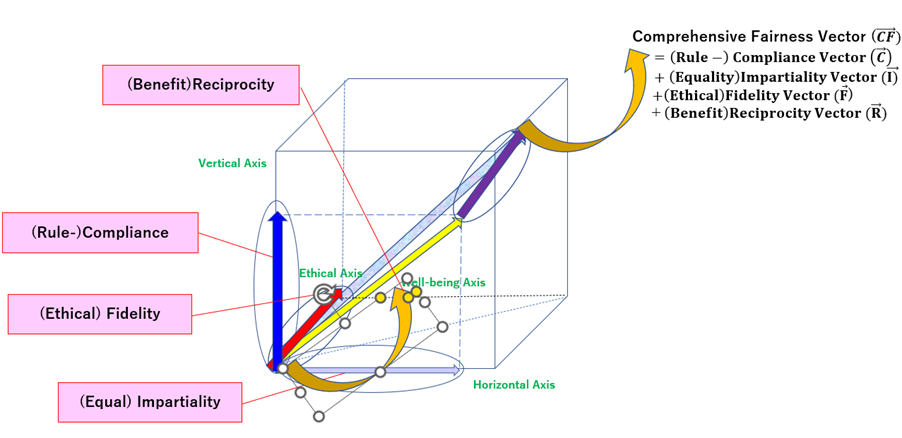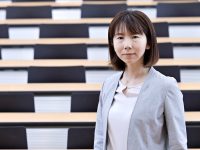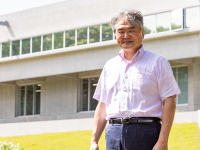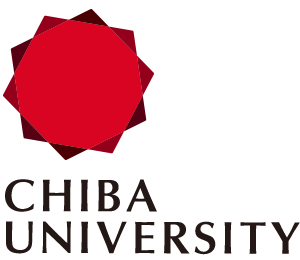Researchers analyze case studies and discuss elements of social fairness, which can help us envision a fair post-pandemic society

Note: The Well-being axis is indicated in a curve because the fourth dimension cannot be visualized in the three-dimensional space.
Title: Key elements of social fairness in a post-pandemic world
Caption: Researchers from Japan provide novel insights on political, societal, and environmental perspectives to envision and restructure a fair post-pandemic society.
License type: The Editor(s) and the Author(s), under exclusive license to Springer Nature Singapore Pvt. Ltd.
Restrictions: Cannot be used without permission
The Coronavirus (COVID-19) pandemic has led to significant losses on a global scale since 2019. As we continue to recover from its after-effects, there is an unmet need to address social inequality across different populations to minimize long-term damage. However, the definition of fairness differs contextually with respect to the COVID-19 crisis.
Now, a team of researchers from Chiba University, Japan, has conducted an in-depth analysis of aspects which govern fairness in a post-pandemic era, and disparities leading to inequality. These insights were published in the book ‘Social Fairness in a Post-Pandemic World – Interdisciplinary Perspectives’, which was edited by Dr. Hikari Ishido, Dr. Jiro Mizushima, Dr. Masaya Kobayashi, and Dr. Xiaofang Zhang. “We present novel perspectives on openness, freedom, and well-being by combining political, economic, historical, philosophical, and cultural analyses in the post-pandemic era,” says Dr. Ishido.
The authors discussed four elements of social fairness— ‘rule-compliance,’ which implies international environmental treaties and domestic laws; ‘equal impartiality,’ which entails equal respect for fundamental human rights; ‘ethical fidelity,’ which concerns bona fide sincerity or loyalty to the ongoing legal restrictions and cultural customs; and ‘benefit reciprocity,’ which includes the actual give-and-take of essential goods across countries.
Vaccination emerged as the most effective way to control the magnitude of the pandemic. Notably, the COVAX facility was established to ensure equitable distribution of COVID-19 vaccines globally. In this regard, the authors explain the need for a ‘fair priority model’ as opposed to the ‘proportionate distribution model,’ whereby vaccine allocation addresses the nations’ disease burden, socio-economic security, and risk status.
Addressing the environmental impact of the pandemic to reduce the load on socio-economically weaker nations, the authors suggested adopting a global model that ensures that economic growth does not supersede environmental protection. Additionally, they focused on regional variations in pandemic responses, political restructuring, transformation of global trade, and its effects on the well-being of diverse populations.
In summary, the book highlights familial, societal, national, and global issues raised by the COVID-19 pandemic and provides novel insights into the structuring of a fair post-pandemic society.
Explaining the long-term implications of their work, Dr. Ishido concludes by stating, “As an interdisciplinary work, these findings could advance our understanding of how a post-pandemic society could emerge, based on the four inseparable components of fairness.”
Reference
Title of book: Social Fairness in a Post-Pandemic World – Interdisciplinary Perspectives
DOI: 10.1007/978-981-19-9654-2
Contact: Hikari Ishido
Graduate School of Global and Transdisciplinary Studies, Chiba University
Email: ishido@faculty.chiba-u.jp
Public Relations Office, Chiba University
Address: 1-33 Yayoi, Inage, Chiba 263-8522 JAPAN
Email: koho-press@chiba-u.jp
Tel: +81-43-290-2018
Recommend
-

Understanding the Relationship between Diseases and Membrane Protein Structure
2022.07.26
-

Examining Social Injustice of Modern Society through “Child Poverty”: Creating a Society Where Every Parent is Respected, and Every Child Thrives
2023.05.26
-

The reciprocity of life: The interactive relationships between people, plants, and the environment
2023.05.19


